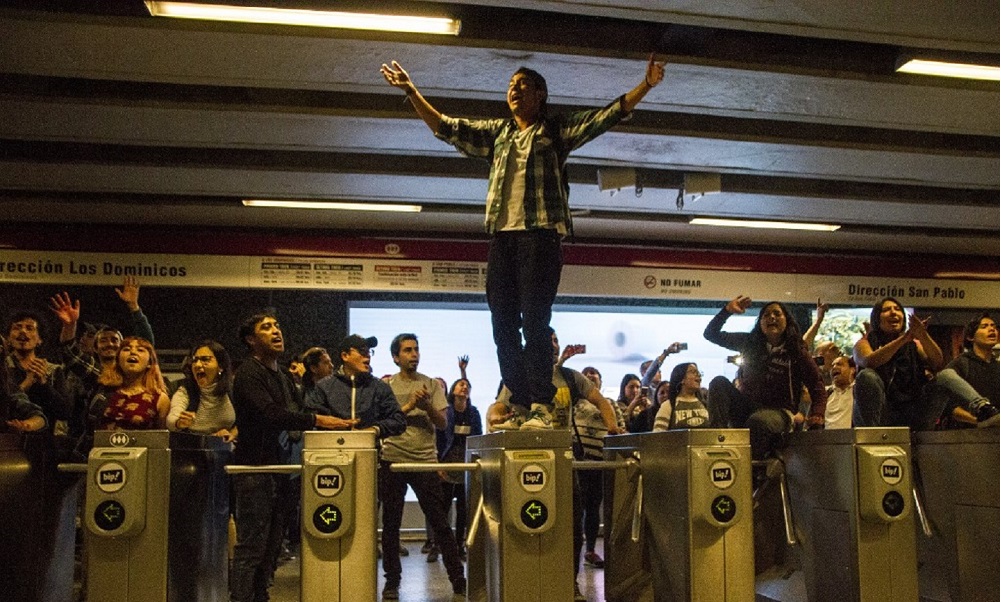El llamado a las evasiones masivas que han encabezado las y los estudiantes secundarios vive un viernes de profunda confrontación callejera con un amplio apoyo social: tomas de estaciones de metro, barricadas en las calles y caceroleos por todo Santiago. Organización espontánea pese a estar sin transporte en toda la capital, Santiago paralizado.
El libreto del gobierno es reforzar la represión que ya venía utilizando los días previos, esta vez avanzando en invocar la Ley de Seguridad del Estado, una política de enemigo interno heredada de la dictadura que pese ha su oficialización por Piñera y el Ministro del Interior, Andrés Chadwick, esto no ha intimidado a las manifestaciones que han logrado hacer retroceder a las Fuerzas Especiales, se suma a que ya plantaron que no habrá metro todo el fin de semana. Un verdadero estallido que expresa el repudio al aumento del transporte público, una medida que incremente las condiciones de vida de las mayorías que trabajan en nuestro país, situación contraria a aquellos que se enriquecen con el negociado del transporte público.


Avanzar hacía el paro general: Contra la Ley de Seguridad de Estado y parar detener las alzas.
La nostalgia de la dictadura como respuesta de Piñera es la tónica que emplea el gobierno da pasos a políticas antidemocráticas. El estallido del viernes de furia abre un camino importante para plantear que ante la represión el pueblo sigue movilizado, por lo tanto demuestra su potencial para enfrentar la creciente precarización de la vida que afecta a los salarios y el malestar, hay reservas sociales para detener al gobierno.
Es en sentido que aquel rechazo transversal que se expresa como respuesta radical al encarecimiento de la vida de la clase trabajadora en su conjunto, es el llamado que debe encontrar respuesta a manos de las principales centrales sindicales, junto a las federaciones estudiantiles y avanzar en el paro general con una movilización masiva para frenar las alzas y detener la represión de políticas anti democráticas como lo es la Ley de Seguridad del Estado.
Esta breve nota se escribe en medio de las manifestaciones en Santiago.






